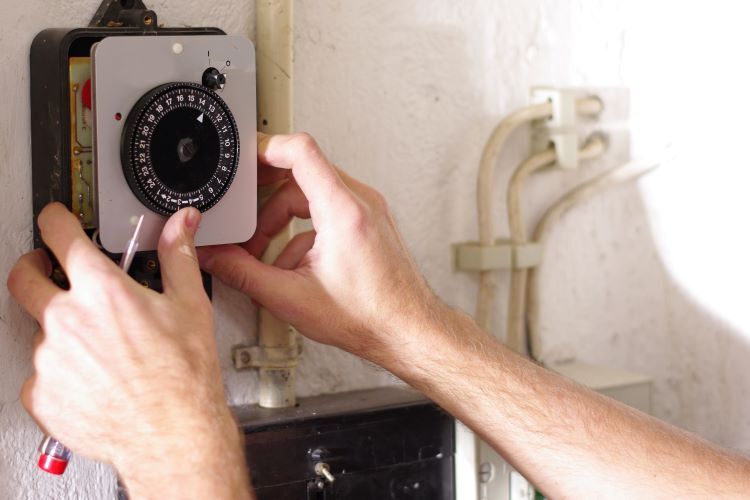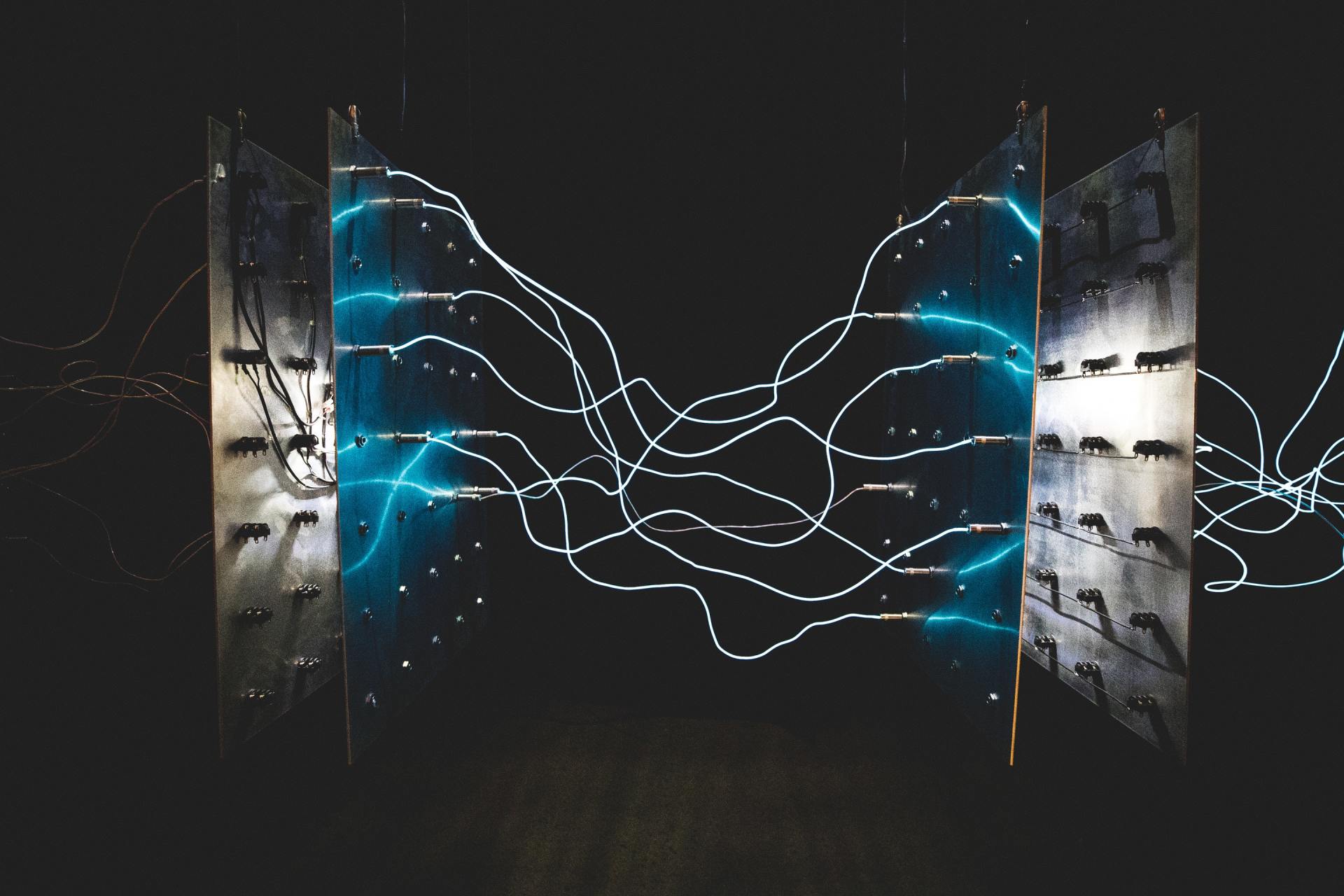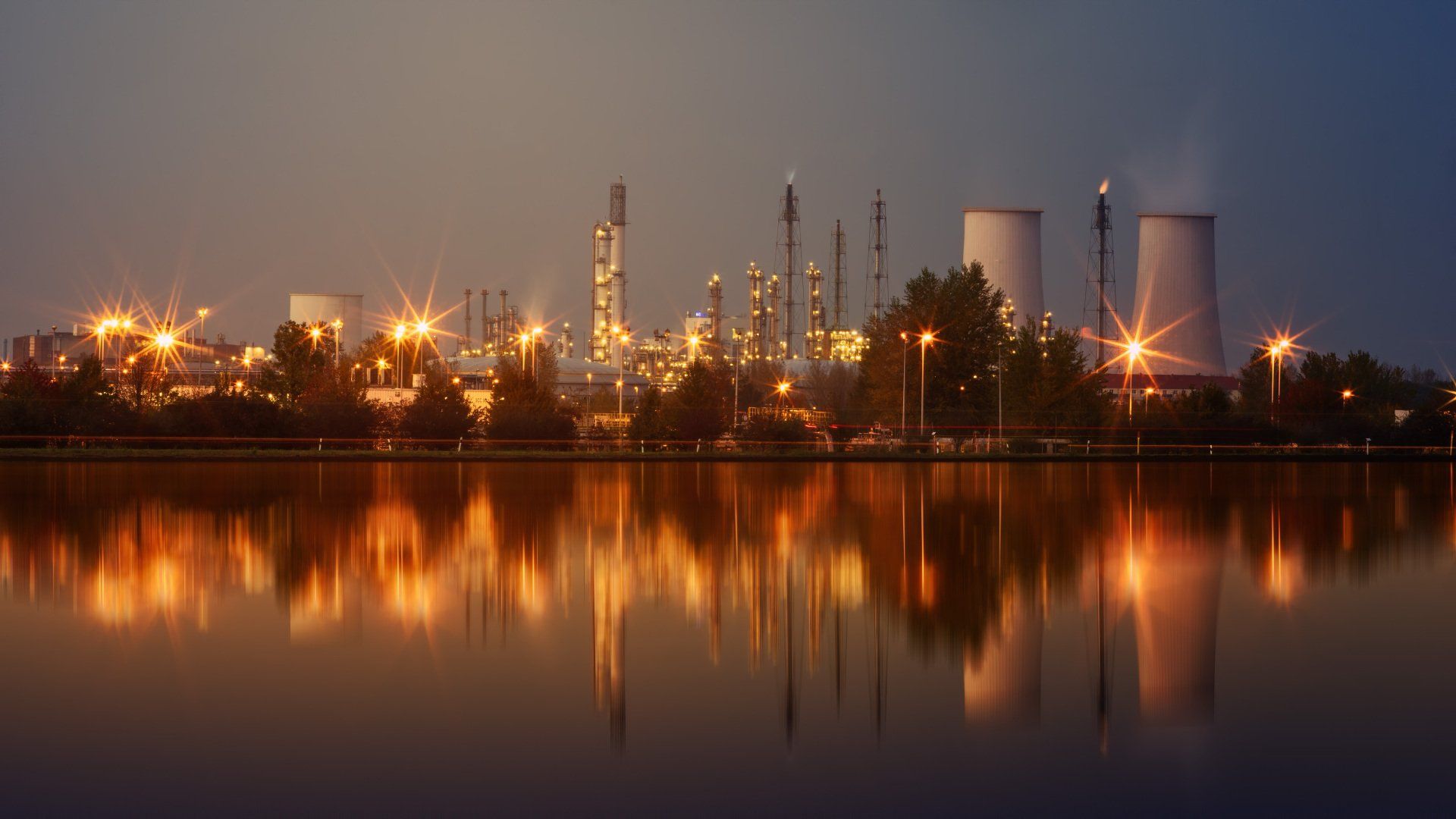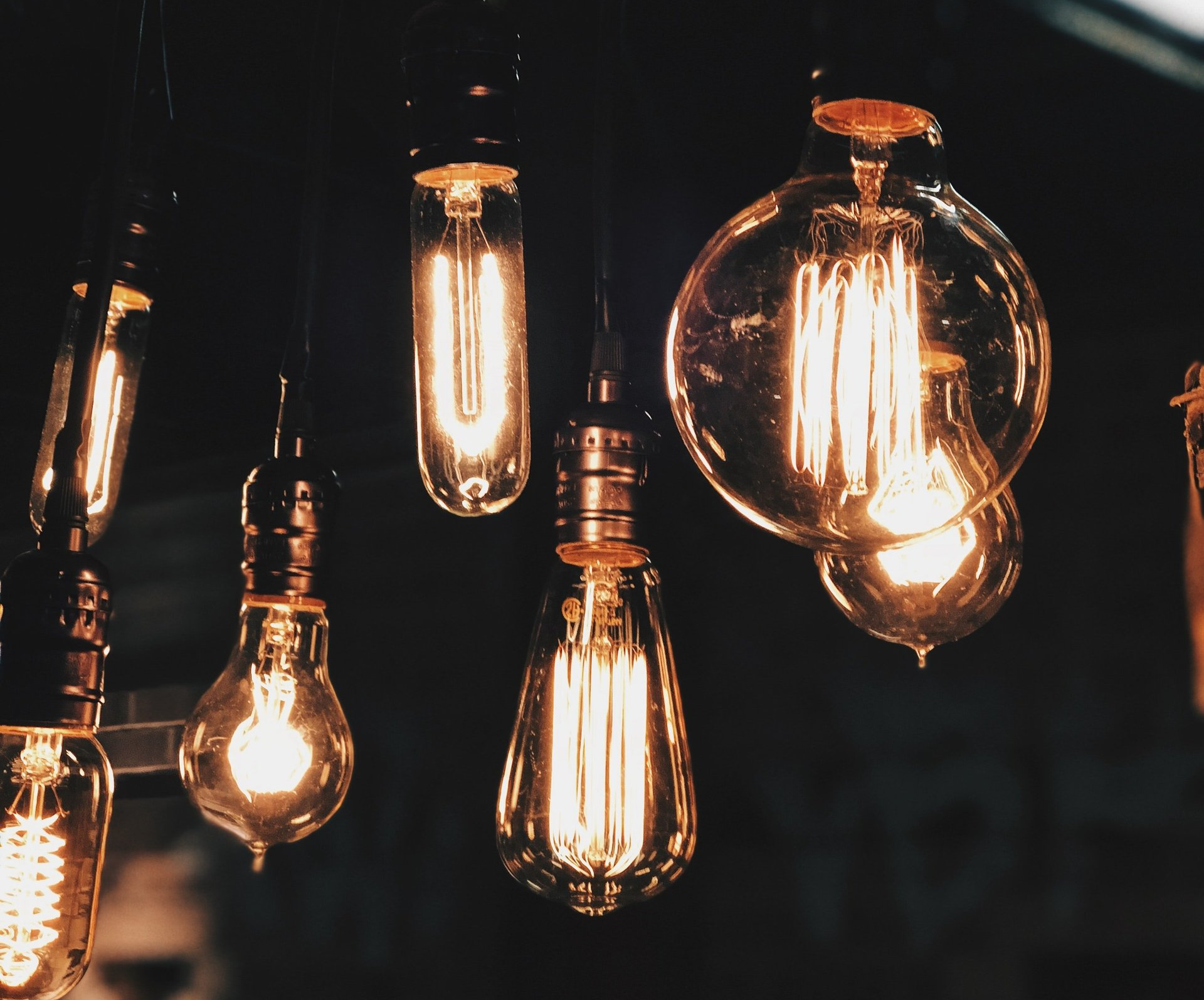Welcome to Our Blog!

Finding the right electrical company to carry out the electrical services that you or your business are needing can be a tough decision, and one that will effect the performance of your home or business. We understand these types of choices and that's why we always do everything we can to inform and empower not only our clients, but potential customers as well so they can always make the best decision that will positively impact them. Our electrical contractors have been providing reliable, affordable, and professional service to Calgary's homes and businesses for many years. Let us help you today! Electrical Company Calgary has a team of dedicated electrical professionals who have been helping customers with their electrical installation needs in Calgary since 2014. We provide a variety of services for both residential and commercial customers including: lighting systems, product pricing, innovative electrical construction services, and much more! Our commercial contractors have years of experience working with a qualified electrical engineer to ensure that you are getting the services that will work best for your business. For our residential customers, we make it a point to understand your need, and we offer cost-effective options that fit within your budget without compromising quality or safety. When it comes to finding a dedicated residential electrical contractor then look no further than the electrical company Calgary! Our team of professionals strive to be the best, and we are always working hard to provide both our residential and commercial customers with prompt professional service. Don't hesitate call us today so we can help you out, our residential electricians have the training, skills, knowledge and tools to ensure your project goes smooth from start to finish. Our company is fully licensed, insured, bonded, and adheres to all safety standards. For your added security our technicians are certified by the Alberta Safety Council (ASC). Our electricians are also police checked before they can join our team at Electrical Company Calgary. All of which ensure that when we go onsite to do any work it is done with top quality craftsmanship; safely; professionally; and within the time-frame that was agreed upon. Electrical Company Calgary provides a comprehensive range of electrical installation, design and construction services to customers throughout the greater Calgary area. We've been working on various projects throughout the electrical industry and have been providing a quality finish to all types of jobs for clients of all sectors. Our electrical solutions are practical and safe, and our values are honesty and integrity. If we aren't striving to go above and beyond to ensure our customers are 100% satisfied then we have not done our job. We understand that reliability and quality are essential when it comes to an electrical company that you trust to work on your home or business. When you want to work with a dedicated, reliable and talented electrical company then look no further than us! Electrical Company Calgary is ready to help you today. We provide free consultations for all of our services so we can sit down and discuss exactly what your needs are and how we can best suit them. Our team at Electrical Company Calgary will take the time to listen and understand your situation and inform you on many options that you have available to you. All of which comes at no obligation or cost to you! If our suggestions don't meet your needs then we won't say anything, but if they do then give us a call today because it could save you money in the long run. With over 20 years of combined experience in the electrical industry our residential and commercial electricians have been servicing the Calgary area with their knowledge, training, skills and tools.

Let's start by explaining what electricity is. Electricity is a form of energy that can be created and transmitted through a variety of means, one being the copper wires found in most homes connected to an electrical source. In this article we will explain how the electricity from your power company gets to your house or business and how it flows throughout all the wiring inside to make things work. In order for electricity to be used as a usable form of energy, it must first be converted from its usable form into something more useful like a current carried on a wire. This process starts at power plants where generators create electricity then carried on high voltage transmission lines that carry the electricity over long distances, often across several states at very voltages where it is then stepped down to lower voltages for distribution. The electricity generated at power plants usually starts out at 765,000 volts or higher and depending on the size of the transmission lines close to where its generated it may start as high as 765,000 volts then drop down to 138,000 volts before reaching a substation. From there it is transformed into smaller stages from 138,000 to 34,500 then finally dropped down one more stage from 34,500 volts to 4,160 then 3,300 before entering the service area where the substations deliver power directly to local transformers near homes and businesses. These large transformers take in roughly 3-4 kV along with two hot wire carrying lines that run next to each other carrying a third neutral line which gets carried inside to the transformer where it is transformed from 3-4 kV down to 240 volts or 120/240 single phase power. This process of reducing voltage by a factor of 100 occurs at each and every transformer along a loop, making them critical to proper distribution. The wire from your house generally starts as 2 hot wires with a ground wire that run together through your breaker panel then eventually branch off into multiple branches that deliver electricity throughout all parts of your home or business. The first stage begins at the main service entrance, beginning as the two hot wires that travel up directly from the service drop which come in via underground conduits connected to either side of this entry point and create what we call a "Tripod" or "T" configuration with the neutral wire running in the middle of it. This point is called a meter which can often hold up to 200 amps of current on each side for commercial services. The service entrance brings electricity directly into your home or business, where it branches off into smaller lines that eventually branch off again and again until they reach breakers at every appliance in your home. From here you have control over what gets power and what doesn't using circuit breakers to cut the power off while still leaving some appliances powered on if needed. These circuits are then built up into even larger groups by electricians who specialize in residential wiring jobs to ensure safety during normal operations and emergencies through proper grounding, short-circuiting, and proper wiring from the breaker panel to appliances. One of the most important things you will learn about electricity is that it has a very difficult time traveling over long distances for large amounts of power because while electricity can travel great distance through a conductor such as a copper wire, going into another circuit with different voltage levels causes power loss during transmission. For example if line 1 has 240 volts at 50 amps coming out of its service entrance and transformer while next door line 2 only has 120 volts at 25 amps after being transmitted from line 1 down the block, both lines would have similar voltages when entering their respective meter but after traveling from the street to their meters they are now unbalanced and cause power loss in the process. This power loss is called "I2R Loss" which means current squared times resistance. The longer the wire or distance it travels through poor wiring, bad connectors, long distances without proper voltage reductions, etc causes even more power to be lost which just results in higher bills for you with nothing given back for this excessive use of electricity. Electricity is very difficult to work with and many people just ignore how dangerous it can be if you don't know what you're doing when trying to install new circuits (Which can often lead to fires), working on appliances, fixing circuit breakers (Overloaded circuits are dangerous because the wires behind your breaker panel contain no more insulation than they need which gets burned away once overloaded past their limits), or even simple tasks like replacing light bulbs. Electricity is very dangerous if you don't know what you're doing so I would recommend never working on anything with it unless an electrician is present who has the proper training to ensure safety. The next time you use your computer, flick on a light switch, or even cook food in your kitchen think about how electricity got there and how its gotten to all of the appliances where you are using them at this exact moment. That wire behind your breaker panel made possible by power plants hundreds of miles away gives us the power to work, play, relax, sleep… Life wouldn't be as great without access to electrical power!

People's homes are full of electrical devices designed to improve their lives. Just think about all the appliances in your kitchen, the LCD television in the living room, and the different lights spread out through various rooms in your home. The list goes on and on - but one thing remains constant: when it breaks down, you'll want to call an electrician for help. Before you pick up the phone to make that call, there are some things that you should consider first. On average, homeowners spend $1,500 every year paying for electrical repairs or maintenance work after calling an electrician. To avoid this sort of financial headache, here's what you need to know before hiring an electrician. 1) Check prices online; shop around 2) Get ideas for repairs; research different types of repairs 3) Do the prep work before the electrician comes over 1. Check prices online; shop around: You can easily find a great deal on electrical services by taking a few minutes to search for it online. One quick search and you could end up with three or four estimates all at once, which will allow you to compare quotations from several different providers without any hassle. Some people think that this is cheating, but there isn't anything wrong with getting as many price quotes as possible before making your final decision. The more information you have at your disposal, the equipped you'll be for making a final decision. However, you need to make sure you are being careful when gathering quotes and selecting a company - while some companies come in with very low prices, they are also offering very low quality of work. If you need a real estimate that is on par with industry standards then you can call us today. We've been in the electrical business in Calgary for over 10 years, we know how much it takes to professionally finish any type of electrical work so you can trust that when you get a quote from us it is an honest quote to get the job done right. 2. Get ideas for repairs; research different types of repairs: One of the best resources that you can use to identify potential problems is your own home or apartment. For example, if you notice a certain light fixture flicker every time you turn on a certain appliance, chances are there's something wrong with the wiring in your wall . Although this doesn't necessarily mean that you need further electrical work done, it suffices to say that if one or two lights flickered here and there - there might be a problem worth looking into. If your outlet was designed to accommodate standard plugs - but now they're starting to wear out and stop working after just six months - then it's probably time to think about replacing several of the outlets in your home. 3. Do the prep work before the electrician comes over: There are many different things that you can do to prepare for an electrical service call, including getting rid of excess clutter or making sure that certain parts of your home are accessible. If you're trying to get repairs done on a light fixture, for example, then someone will have to be able to get up onto a ladder - which means that you should clear out any furniture below it so that they have room to step up. You also want to make sure that no one else is around when the electrician arrives - especially if you live in an apartment complex with several occupants. Don't forget about pets either; while some pets will run away when they see someone new arrive, others will be more aggressive. By taking the time to think about these three things before you call an electrician, you can save yourself a significant amount of money by avoiding unnecessary repairs - and not knowing what's wrong in the first place. You'll also help yourself to avoid any future headaches by doing your research and taking steps to make sure that you won't be negatively affected by the service call. For more information on this or any other type of electrical repair, contact us today! We have over 10 years of experience in Calgary, AB and would love to help you with all your electrical needs!

Electricity is a major part of our lives now. In fact, electricity powers everything from cars to coffee machines, and has become the most important source of energy in our world today. It's expected that power related activities will only double by 2040. We need to understand how we can conserve more electricity and also save money on our monthly bill. This won't only help bank accounts, but it will also help our environment and improve the way we think about the longevity of our planet. The tips in this article can help you cut back on your power bill and also conserve energy for the world we live in. 1) Change electric appliances: This is an obvious way to save some extra bucks out of your pocket every month. However, it's worth mentioning as not many people realize just how much they can actually do with this method. The biggest example would be if you buy new appliances for your household which come with the "Energy Star" label. Appliances with this label have been tested to use at least 20% less energy than in the past, which also means lower electricity bills in your household . So you can save a lot in a long run from buying the right appliances when the time comes. 2) Change light bulbs: A vast majority of us still have incandescent bulbs in our homes today. These are basically the oldest type of bulbs that create light by heating up a metal filament inside them. They produce plenty of light but unfortunately they consume a lot more energy. If people would slowly replace these lights with CFL or LED lights, it will be a great move for their electricity bill and make a significant impact on our environment too . 3) Switch timer settings: As the name suggests, timers are used to switch lights or other appliances on or off. There is plenty of different variety in terms of models and it's easy to find ones which you can set for certain time periods so they go on or off by themselves. This setting doesn't only save you money, but it also help reduce your energy consumption which means nothing will get wasted . You simply need to adjust them before leaving home and that's all there is to it! It might sound pretty simple, but surprisingly enough very few people actually do this! 4) When doing laundry: Did you know that washing machines account for around 27% of total household electricity use? Of course this figure differs depending on the specific household but it definitely shows that this appliance uses a lot of power. However, there are things that you can do about it. Instead of always running the machine with full loads, why not wash your clothes in smaller portions? It will definitely help if you're trying to save energy and cut down costs . 5) Auto-shutoff timers: These are pretty similar to the ones mentioned above but they work on a different principle. They are mainly used for convenience purposes by making it easier for people who forget to switch off lights or other appliances when leaving home. These auto shut off timers automatically turn appliances off by themselves which means no extra cost for you! By following these simple tips it's possible for everyone to save more electricity without much effort or any extra costs involved. Remember that electricity is vital for our lives today but we still need to learn how to use it wisely... There are plenty of ways in which you can help save more electricity and also reduce your monthly bill by making small adjustments around your home. Changing light bulbs or using timers can definitely help, although there are some other methods as well which might be more suitable for your household. The important thing is that you now have an idea of what those are and can start putting them into action as soon as possible! We help people save electricity so they can lower their monthly bill and reduce environmental impact. Our company does this by providing energy efficient electrical services and installing energy efficient appliances to households in order to provide all the necessary services which might help them save on power bills or live a greener life!

Electricity is a big part of our lives. It affects everything we do and even the way we live our lives. Without electricity, our society would be nothing like it currently is today. In order to get a good understanding about how important electricity is to our everyday lives, let's consider how life would be if there was no electricity at all. For the purpose of this article, assuming that all sources of energy have been depleted on Earth and only renewable resources are available in order to produce electricity, let's say that humanity has adapted itself accordingly and has no modern technology at its disposal anymore except for basic tools such as axes and knives which can be powered by manual labour alone. All necessary machines will not work without needing some form of energy that can't be produced by human strength alone. Let's consider that the technological revolution has become a thing of the past and there are no electronic devices, electric equipment or any sort of machinery running on electricity anymore including cars, phones, lights or anything like that. People would now have to rely on basic tools for day-to-day use and getting around (e.g. horse drawn carriages). Farming is done by manual labour as well; nothing works without electricity anymore which means people don't go shopping for food at supermarkets because there isn't one nearby anymore since it requires too much energy to keep running all day long every day for years! There is no central heating in buildings either so people will need to burn wood in order to keep warm and cook food. Needless to say, life will be very uncomfortable without electricity since nowadays we rely heavily on technology and it's ubiquitous. In addition, people wouldn't have access to clean drinking water unless they find a clean lake or river nearby where they could gather some fresh water by hand every day which might pose another set of problems on its own if said lakes or rivers are too far away from where people live and they need to walk long distance in order to get back home. Not only that, it would be very hard for people to network and interact with other communities who could help them out if they run into difficulties because of the lack of technology being available to them. It's much easier for us today since we have access to the internet from our computers or phones which makes it possible for us to reach out and contact people all over the world in a matter of seconds! In addition, a lot of problems faced by modern society such as robberies, theft, gang wars etc., would not be going on if electricity did not exist since there isn't anything worth stealing without any electrical equipment that is capable being powered up. In fact, things such as currency would not exist since there wouldn't be a need for them anymore. A barter system would most likely take its place, with people trading the things they have in order to get other things that they might need. Let's now focus on electricity production and how it works, before going into a more detailed discussion about why it is so important from an economic perspective. We all know how solar panels work by converting light from the sun into electrical energy thanks to semiconductors inside each panel which are used to generate an electric field where the electrons move from negative to positive as they absorb light particles called photons which make them excited, hence producing electricity. But what actually makes this possible? What are these semiconductors and what is an electric field? A semiconductor, in this case made out of silicon, is a material that can be doped with other types of atoms such as boron or phosphorus in order to either increase its conductivity (making it a P-type semiconductor) or decrease it (making it an N-type semiconductor), allowing the flow of electrons through the material when enough voltage is applied across its terminals. As a result of being negatively charged, electrons will move from negative to positive across the external circuit where they are used for something. In a solar cell, photons from the sun hit the P-N junction inside which causes some electrons to get knocked loose from their atoms thus leaving positively charged holes behind, which in turn causes some nearby electrons to get attracted by the positive charge of these holes thus moving towards it. Once there, they will meet up with other electrons that are free floating around inside the semiconductor material but are not attached to any atom, this is how an electric field is formed allowing electrons to flow through it when a voltage is applied across two terminals of the solar cell. As for electricity production in general, it's actually very simple indeed. All you need is a generator which can be run either by coal or natural gas (fossil fuels) or water (hydroelectricity), both of which provide potential energy due to gravity and heat energy since each element has its own boiling point temperature at which it changes state. Once this is done, you will get electricity out of the generator which essentially uses electromagnetic induction to create an electric current flow through a wire (coil) placed inside the magnetic field created by its permanent magnets. The turbine attached to the generator spins whenever water or steam flows through it causing some blades at the top of the turbine to spin as well thus providing rotational mechanical energy through its shaft which can be used for something else such as powering up an electric motor that turns our generator in this case. From what has just been said, we see that electrical energy production can come from many sources and yet there are still problems with how electricity is distributed nowadays! Most people today think that electricity costs money when it is actually a service that we pay for, not the electricity itself! What I mean by this is that you have to pay for the fact that someone came and visited your house to install an electrical line from where you live all the way to your home. The actual production of electricity at power plants into usable energy such as KW/h or kWh (kilowatt-hour or kilowatt per hour) costs much less than what you might think it does. But why is it so important from an economic perspective? Electricity makes people's lives easier since without it, most things would require a lot more time and effort in order for them to be done properly. It also helps facilitate many daily activities throughout even developed countries such as heating, cooling and lighting wherever it is needed. This in turn means more productivity which in the long term makes future generations richer than us since they will be able to accomplish even more with what we were not able to do because of disorganized electrical grids, lack of proper education for people who would want to make a career out of engineering or simply due to a lack thereof. The bottom line is that if our world did not have electricity, I'm sure you'll agree that things would be much different from how they are today! Hopefully after reading this article you will realize the true importance of electrical systems, and when it comes to understanding what energy is all about and why electricity actually matters. As always, don't hesitate to get in touch with us if you have any questions about electrical services, what we do or how we can be of service for all of your electrical needs!

Residential electrical wiring systems involve the use of home appliances and devices that require an electrical source to operate. Examples of these include heaters, air conditioning units, fridges, microwaves, televisions and many more. Residential electrical wiring is beneficial as it can provide a cost-effective way to power multiple devices in a single household. This allows homeowners to save money on energy bill costs by minimizing how much they pay for other forms of technology such as lighting and heating. As more and more people are now working from home, this means much more electricity is being used to power these newly needed home offices. With a surge in power being needed by numerous people everywhere, this is cause to ensure that your current home electrical wiring system is working properly and safely in order to conduct your business. According to a study conducted by the National Fire Prevention Association (NFPA), residential electrical wiring is the predominant cause of most fire-related deaths in the United States. Roughly, the residential electrical wiring system accounts for more than 30% of all home fires. However, these fires are usually preventable and could be prevented with homeowners being educated on how to operate and use these systems properly. A few tips that will help you understand residential electrical wiring systems! 1. Always replace fuses when they blow out instead of trying to fix them yourself – your family's safety is at risk! When fuses blow, this means that there is too much current running through your system, thus leading to a potentially hazardous situation. This may occur due to overloaded circuits or wrong type of wires being used. 2. Any signs or smells that indicate overheating from your fuse box (which can potentially result in an explosion), we highly recommend that you contact a professional. If you are having electrical wiring problems at home, we recommend that you contact an electrician immediately for assistance and more information on why this could be occurring as well as how to prevent it from happening in the future. Majority of homes that have built in the last several decades are wired to have a 200-amp specified by electrical code. This is normally a sufficient amount for normal use, unless you are running some type of shop which is using heavy duty tools and equipment. When it comes to safely running your home office, although you may have enough amps running through your home to power it, there may be a shortage of outlets. Power bars are a common practice but this is also unsafe and not a proper long term solution. If you are conducting business from home and need more outlets, its best to have a professional install as many outlets as you need to safely carry out the work that needs to be done. Older homes carry a host of potential hazards and complications when it comes to the existing wiring systems in place. A common issue with old homes is that the wiring is not properly grounded, which can make it extremely difficult to perform any DIY electrical work. When looking behind an outlet most older homes will only have a black and a white wire, without the ground wire in place it can become a very dangerous situation when attempting to carry out any type of electrical work. When it comes to these older styles of homes, it's always best to contact a professional for any electrical services that need to be done. There are many different aspects regarding residential electrical wiring systems, so make sure to educate yourself before making any quick decisions about your residence's electrical system or if there is any current issue with it such as overloading. Getting regular maintenance checks done by professionals will help with preventing electrical fires and power outages. Knowledge is power when it comes to safeguarding your family against fire emergencies. For more information on residential electrical wiring systems feel free to contact us anytime. our expert are standing by ready to assist you with anything electrical related!




